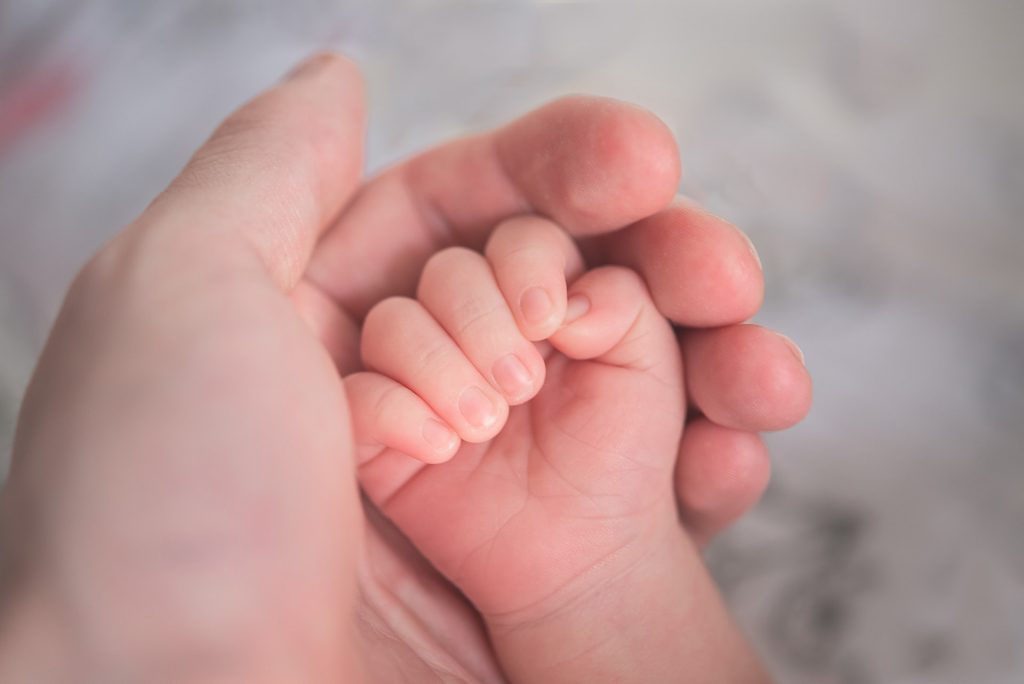Health
Young infants produce strong immune response to SARS-CoV-2, study finds

Young infants show strong immune responses to SARS-CoV-2, new research has found. In particular, compared with adults, young infants produce relatively high levels of antibodies and immune cells that can specifically protect against COVID-19.
The study led by academics and paediatricians at the University of Bristol and Bristol Royal Hospital for Children is published in Cell Reports Medicine.
During the pandemic, children have been much less likely to become seriously ill with COVID-19, which is unexpected, especially in young infants who are known to be vulnerable to severe disease from other respiratory viruses, such as RSV (respiratory syncytial virus) and flu.
Early in the pandemic, it became evident young infants with COVID-19 who were being cared for by paediatricians at the Bristol Royal Hospital for Children were only mildly affected by the disease.
With very little data published on the immune response to SARS-CoV-2 in young babies, the research team set out to examine antibody and cellular immune responses to SARS-CoV-2 in young infants compared with adults.
The research team evaluated convalescent immune responses in four infants under three months old with confirmed COVID-19 who presented in March 2020 with mild febrile illness, alongside their parents, and adult controls who had recovered from confirmed COVID-19.
The researchers found young infants produce relatively high levels of antibodies and immune cells that can specifically protect against COVID-19, compared with adults.
The findings could help explain why young infants appear protected from severe COVID-19, at a period of their life when they could be more vulnerable.
Dr Anu Goenka, Clinical Lecturer in Paediatric Infectious Diseases and Immunology at the University of Bristol and Bristol Royal Hospital for Children, said: “By conducting a detailed study on young infants who are relatively protected from severe COVID-19, we have shown what protective immunity ‘looks like’, in terms of the make-up of specific antibodies and immune cells directed against SARS-CoV-2.
“This is very useful information for the design of future COVID-19 vaccines that could seek to induce and mimic the signature of this protective immunity.”
The research team would like to confirm their findings in a larger cohort of infants, as well as compare infant vs adult immune response during COVID-19 during and at several timepoints after their infection.
The work was supported by Wallace and Gromit’s Grand Appeal, the dedicated charity for the children’s hospital, the Elizabeth Blackwell Institute, Wellcome and UKRI.
Paper
‘Young infants exhibit robust functional antibody responses and restrained IFN-γ production to SARS-CoV-2’ by Anu Goenka et al in Cell Reports Medicine [open access]
—
About the Wallace & Gromit’s Grand Appeal
Wallace & Gromit’s Grand Appeal is the dedicated Bristol Royal Hospital for Children charity. It runs a multi-million-pound portfolio of investment in partnership with the children’s hospital and its Neonatal Intensive Care Unit at St Michael’s Hospital, Bristol.
Bristol Royal Hospital for Children is a national centre of excellence. It treats over 100,000 patients each year from across the entire South West and South Wales region and is home to some of the most exciting advancements in global paediatric healthcare. Babies, children and young adults with highly complex medical conditions – from rare genetic disorders, neurological conditions and congenital heart disease to traumatic injuries, cancer and kidney disease – are cared for around the clock by leaders in their respective fields. Just like Bristol, the hospital is a hub of innovation, where every day these experts pave the way for sick children through a vast network of research projects with international impact.
It’s thanks to The Grand Appeal the hospital is a pioneer in so many fields today. Through its unique, trailblazing partnership with Aardman Animations, The Grand Appeal has diversified its funding streams to bring in the most advanced medical equipment, including the UK’s first-ever Cardiac Hybrid Theatre in a paediatric setting, an intraoperative 3T MRi Scanner – one of only three in children’s hospitals across Europe – and a ground-breaking neuro-robot, which helps neurosurgeons perform major operations with pin-point precision.
Independently, The Grand Appeal runs two family accommodation facilities – with a third currently in development – and employs over 20 specialist support staff who work on the ground in the hospital to ensure every aspect of hospital life is centred on the wellbeing of the young patients and their families. It also works with the hospital to create a child-friendly environment and a programme of arts, music and play therapies to ensure the very best patient experience.
About the Bristol UNCOVER Group
In response to the COVID-19 crisis, researchers at the University of Bristol formed the Bristol COVID Emergency Research Group (UNCOVER) to pool resources, capacities and research efforts to combat this infection.
Bristol UNCOVER includes clinicians, immunologists, virologists, synthetic biologists, aerosol scientists, epidemiologists and mathematical modellers and has links to behavioural and social scientists, ethicists and lawyers.
Follow Bristol UNCOVER on Twitter or for our website for more information about the University of Bristol’s coronavirus (COVID-19) research priorities.
About Elizabeth Blackwell Institute
Nurturing research. Improving health.
The Elizabeth Blackwell Institute drives innovation in research to improve health for all. It nurtures interdisciplinary research to address the complex health challenges facing us today.
The institute focuses on:
- Supporting the next generation of health researchers;
- Connecting people to develop interdisciplinary research;
- Including everyone in research so the research can benefit all.
About UK Research and Innovation
UK Research and Innovation is the largest public funder of research and development in the UK. We are composed of seven research councils, Innovate UK and Research England.
Our work spans multiple research disciplines – medical, economic, social, arts, humanities, biological, environmental and global – as well as helping innovative businesses survive and thrive through these tough times. We’ve supported the people and projects behind major breakthroughs, including the Oxford University and AstraZeneca vaccine and the first treatments for COVID. We’re also a key contributor to the transformation of vaccine manufacturing in the UK.





















